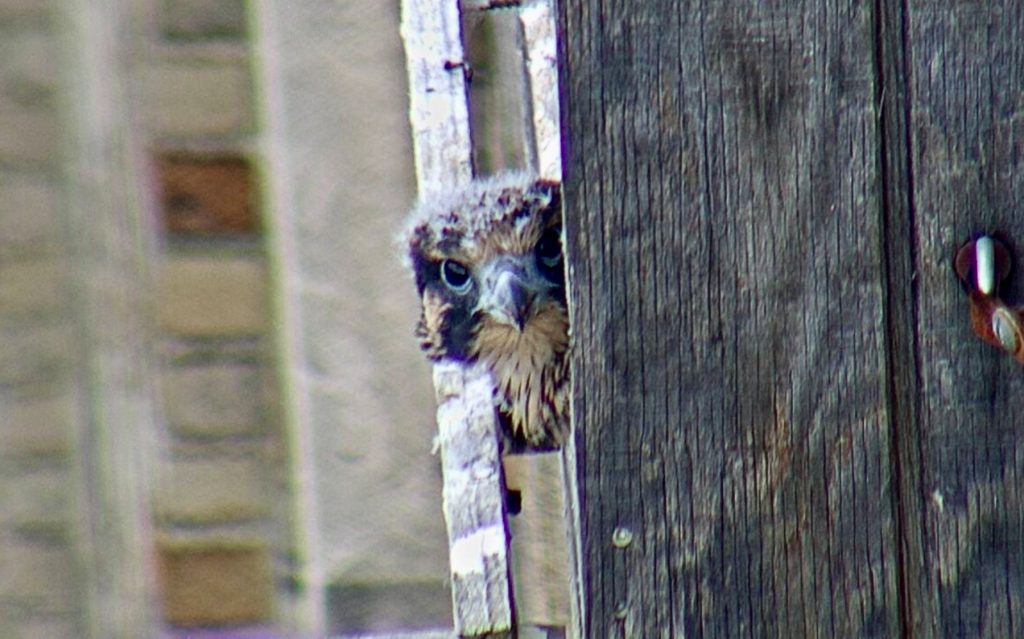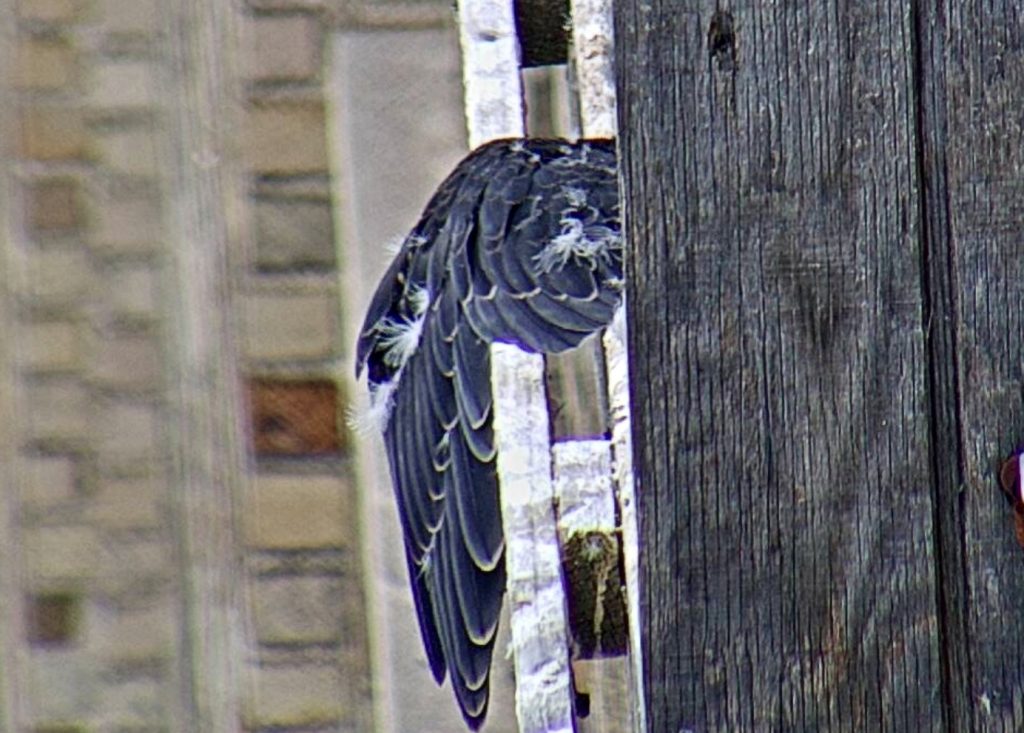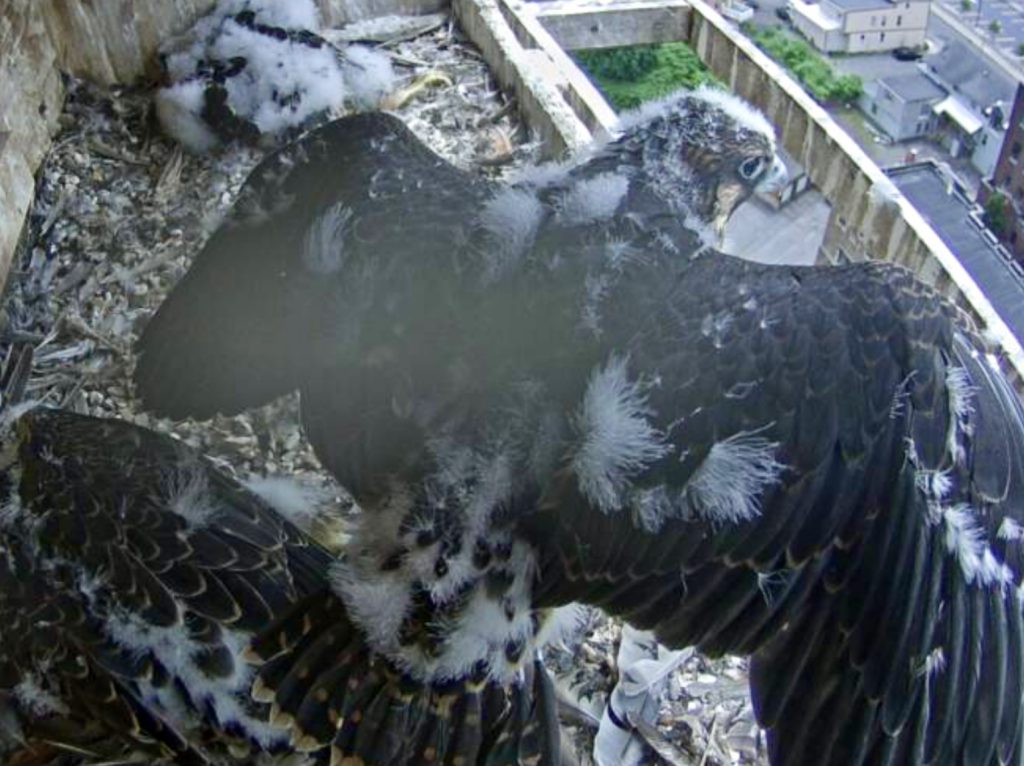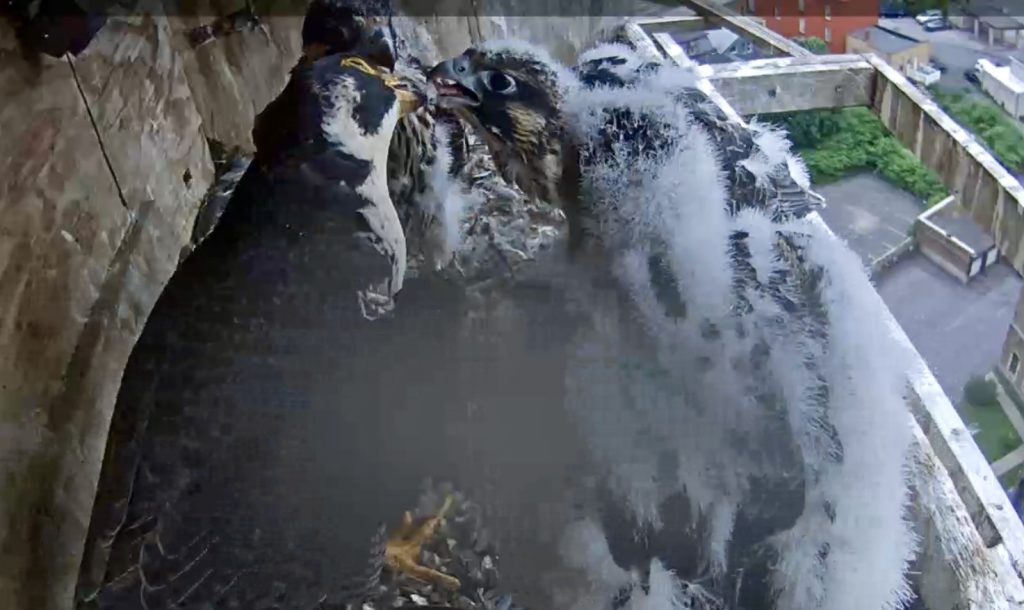Update for Sunday, June 2, 2024

As the chicks get close to fledging time, they begin to do more interacting in the nestbox. Play is an essential aspect of the development of many animal species, including nestling Peregrine Falcons. In the confined space of the nest, Peregrines chicks engage in playful activities that are fundamental for their physical growth, coordination, and social development. These activities include stomping on each other with their oversized feet, grabbing at each other with bills and talons, playing tug-o-war with food scraps, and knocking each other over flailing wings.


Social interactions during play are vital for establishing social hierarchies and learning communication skills among nestling falcons. Through play-fighting, vocalizations, and cooperative behaviors, the young birds learn to assert dominance, recognize submission, and understand their place within the sibling hierarchy. These interactions help reduce future conflicts and ensure a more cohesive social structure as they mature. Mock pecking and gentle grappling with siblings also help the young falcons develop their motor skills and improve their reflexes. These interactions mimic the quick and precise movements they will need when capturing prey and evading predators. By engaging in such play, the nestlings build the necessary strength and agility that are vital for their survival as they transition to independence.

